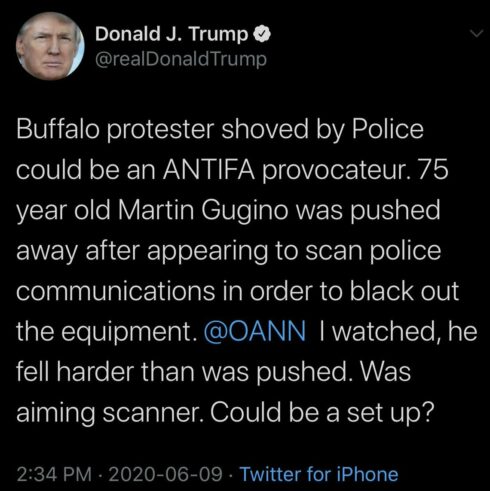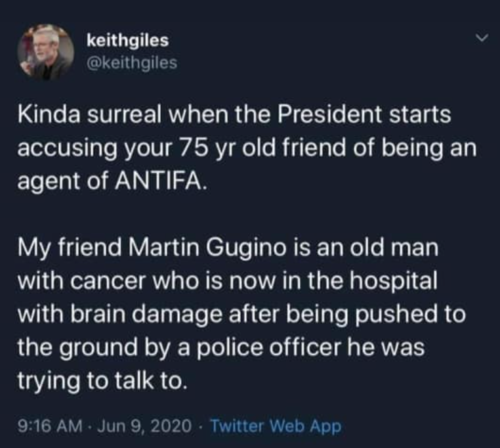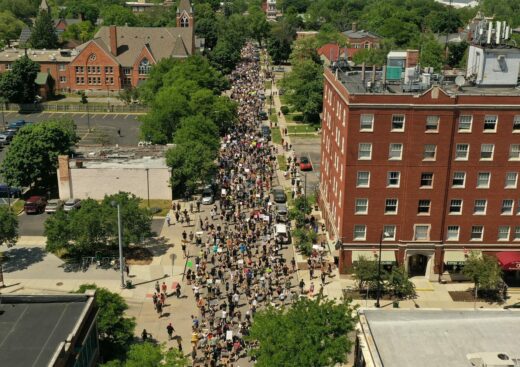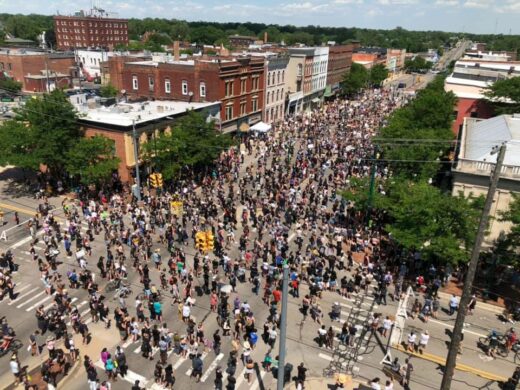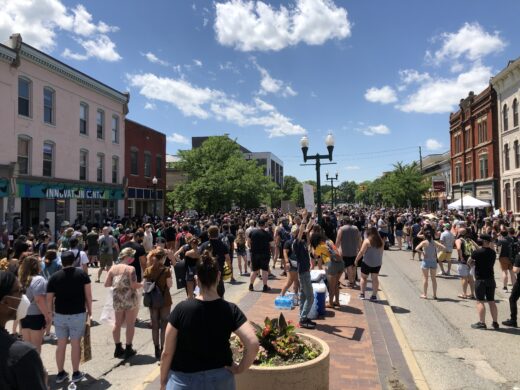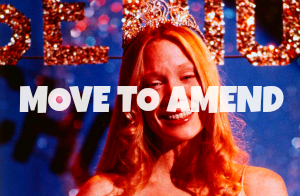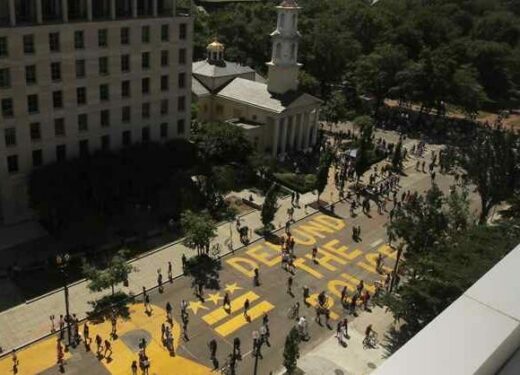
While I’ve always been against the militarization of U.S. police forces, and in favor of more transparency, accountability and civilian oversight, I have to confess that I’ve never taken calls to “defund the police” very seriously. When, in the past, I’ve heard people say that we should abolish the police, I’ve thought that they were being naive. And, while I still think that to some extent, I’ve come around considerably over the course of the past decade, to the point where I now think that, yes, our ultimate goal should be to live in a world where officers of the law, at least as we know them today, are no longer existent. I think that’s a perfectly reasonable aspiration to work toward.
I should preface this conversation by saying that my interactions with the Ypsilanti police department have, over all, been relatively positive. Over the past few years, I can think of two specific encounters that I’ve had, and, in both cases, I’ve found the officers I dealt with to be thoughtful and well-intentioned. I’ve never talked about it here, but we had a mid-day home invasion not terribly long ago. My daughter was home alone at the time, and called the police. The man was arrested inside our home without incident, and my daughter, thankfully, was unharmed. The police, in my estimation, did their jobs well. I arrived just after the arrest to find the man unharmed, and my daughter speaking with two female officers who were both reassuring and kind. I could imagine, in another instance, with a young teenage girl calling from a closet to say that a man had smashed a window and let himself in, the police might have been inclined to respond with maximum force, and, thankfully, that was not the case. The man in question was an older man with a long history of drug addiction and non-violent property theft, and he was taken without incident. In the second instance, I was fortunate to have heard a scuffle while working in my yard, and intervened to stop a man from choking a woman on the sidewalk in front of my house. [The George Floyd case brought this instance rushing back to me, as the older woman being attacked, like Floyd, called out for her mother while being choked.] Luckily, I had a shovel in my hand, and the man took off without a fight. The police, when they responded to our call, were kind to the woman, who appeared to perhaps have a substance abuse problem, and genuinely seemed to care about her well-being, offering assistance and directing her toward other community resources. This, I suppose, could have been because I — a white, middle-aged, male homeowner — was standing there next to her, advocating on her behalf, but I was impressed by how the officers engaged. This isn’t to say that we don’t have a police problem here — I can still remember the David Ware killing — but only to suggest that, yes, I’m painfully aware of the fact that there are instances, such as home invasions and attempted murders, where law enforcement officers are, and will continue to be, very necessary. That isn’t to say, however, that there may not be opportunities for us to start the process of rethinking policing in America.
I should further say that this revelation — that I support #DefundThePolice in theory — didn’t just come to me because of the recent murders and subsequent protests. It’s a path that I’ve been on for quite a while. I can remember, for instance, a conversation I had about four years ago with prison reform advocate Shaka Senghor, in which he pointed to our national recidivism rate of approximately 75%, and asked if we’d accept that rate of failure from any other institution. Of course, we wouldn’t. And I think that probably holds true for the entire prison industrial complex, right down to the cops on the beat who feed the prison pipeline. The system isn’t working, and we shouldn’t just accept it. And we should probably begin asking ourselves, “If we’ve spent all of this money on policing, and it hasn’t given us the kind of world that we want, why shouldn’t we try something different… maybe investing more in pre-K and social services, and less on urban assault vehicles and military hardware.” [If police departments really want those things, maybe they could do what school systems do, and have a bake sale.]
I should also add that I’ve resisted getting behind the “defund the police” movement up until now for a few reasons. Most notably, there doesn’t seem to be any consensus as to what “defund the police” actually means. Maybe that’s by design, but it doesn’t sit well with me. Some, like Black Lives Matter co-founder Alicia Garza, say the phrase means “invest in the resources that our communities need,” which I can totally get behind. And others, like the folks who made this next graphic, apparently take it to mean that we should move with incredible speed toward abolishing law enforcement in America altogether. I can totally understand why, as someone pointed out here in the comments section earlier today, you’d start the negotiations by calling for the total abolition of police, and go from there, but I don’t feel as though right now, five months out from the most important election in our lifetimes, is the right time for the Democrats to embrace an “abolish the police” platform, even if it might be the best negotiation tactic. I just think there’s too much at stake right now to risk another four years with an increasingly unstable, divisive and authoritarian Donald Trump in control. And I agree with former Bill Clinton advisor Douglas Schoen when he says that talk right now of disbanding law enforcement plays “right into the hands of President Trump and will increase his chances to win the election this year.” [Our first objective, I think, has to be getting Trump and Barr out of power, and I don’t want to do anything that might jeopardize that.]
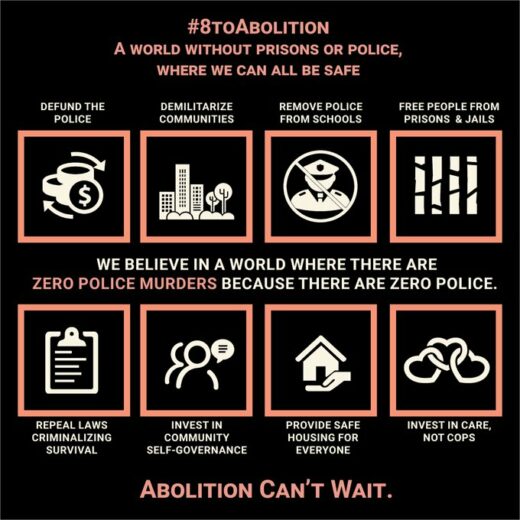
I should add that people, of course, have the right to demand whatever they like. I don’t want to tell anyone what they should and shouldn’t fight for. I very much understand that a significant number of Americans really, sincerely believe — and with good reason — that they would be safer if not for the existence of police officers. It’s easy for me to sit here and talk strategy, saying that a campaign to abolish the police will never move forward as long as we have an authoritarian racist like Donald Trump in the White House, and that people should focus instead on getting him out of office, but I don’t know what’s it’s like to live in constant fear of my son being pulled over by the police. And I can certainly appreciate why some would prioritize this fight over the one against Donald Trump. I don’t, however, see myself actively championing the #DefundThePolice movement right now, even though I accept the idea in principle, for the reasons articulated above… The statement is too broad. And it plays too much into Donald Trump’s “law and order” narrative.
Speaking of Donald Trump’s “law and order” narrative, he just tweeted out the following.
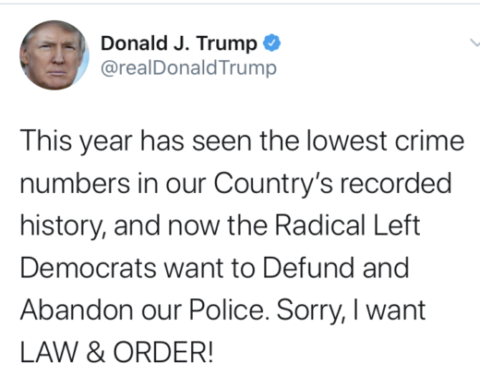
This, by the way, is all that Donald Trump has to run on. He’s losing support among white suburban women, the elderly, and evangelicals, and the only thing that will change his electoral prospects at this point is an appeal to fear that resonates with white America. And we cannot help him make that case. We can’t allow him to define this movement by drawing our attention to those few who are smashing windows and demanding the abolishment of law enforcement.
With all of that said, and campaign slogans aside, yes, by all means, let’s start cutting. Let’s encourage every community to impanel a citizen review board, and conduct an analysis of every 911 call made, thinking creatively about how, under a different paradigm, those requests for assistance could be met by unarmed professionals trained in things like conflict resolution, dealing with the mentally ill, addiction counseling, etc. Let’s look at everything the police do, and think creatively about how each discrete task could be handled differently.
And, again, I like the vision of a cop-less future. I just think that it would be helpful to present it in a way that a larger coalition of people could rally behind. I’m reminded of a campaign that Shaka Senghor, whom I mentioned earlier in this post, was involved with a few years ago called #cut50. Their vision wasn’t to abolish every prison in America, but to cut America’s prison population by half in something like 12 years. And I could see something like that working here — a well articulated plan to incentivize communities to demilitarize and shrink their police forces over a certain number of years, pushing them to think creatively about the work that could be done by unarmed public service workers, and putting a system in place to share best practices that arise from these experiments.
And this, by the way, is already beginning to happen to some extent. In New York, Mayor Bill de Blasio just pledged to cut the NYPD’s $6 billion annual budget, and use the funds for social services. In Minneapolis, a majority of people on City Council have indicated a commitment to “strategically reallocate resources, funding, and responsibility away from police and toward community-based models of safety, support, and prevention. And, in Los Angeles, there’s a proposal to cut the LAPD’s budget by $150M. Here, with more on that, is an excerpt from an editorial in today’s LA Times.
City Council President Nury Martinez and her colleagues proposed reducing the LAPD budget by as much as $150 million — a cut of up to 8% — in the coming fiscal year. Garcetti agreed to redirect $250 million from the Police Department and other city programs to pay for jobs for youths, health initiatives and “peace centers” to heal trauma in the black community.
It’s hard to tell if L.A. leaders consider this a one-time cut to the police budget to answer protesters or the beginning of a larger rethinking of the mission and scope of the LAPD.
…But it’s also clear that the decades-long effort to remake the LAPD has come at a steep price. The Police Department consumes more than half of the city’s “unrestricted funds,” which are tax revenues, fees and fines that can be spent however city leaders wish. Protecting Police Department funding now would require heavier cuts in services and programs that could be used address the root causes of crime, including poverty, joblessness and lack of opportunity.
The LAPD budget has grown 58% over the last decade even as crime has fallen dramatically. The homicide rate in 2019 was the lowest since 1962. In January, Chief Michel Moore declared this was “one of the safest times in Los Angeles.”
To activists and budget hawks, that’s all the more reason to cut spending on the LAPD and reset the mission. They argue that the department is too big, too militaristic and too ever-present in communities of color. Residents in those neighborhoods are more likely to be stopped by police, which puts them at a greater risk of a citation, an arrest or a deadly confrontation. In a “People’s Budget” offered earlier this year, advocates with Black Lives Matter and other grass-roots groups called for a 90% cut in LAPD funding, with the money redirected to housing, health, transportation and community services.
That’s extreme, but the groups are right to challenge the status quo. The city relies too much on the Police Department. Officers direct traffic. They check fares on Metro subways. They’re sent to do welfare checks on the homeless and people experiencing a mental health episode. Do we need law enforcement officers doing those jobs? Or could the work be better done by civilian specialists?
And that’s pretty much where I stand on this. We can, and must, do better as a society. We have an obligation to consider new alternatives to the current paradigm, in which an increasingly militarized police infrastructure presides over us like an occupying force. And this shift does not have to be scary. It can be positive. And, if done right, it can actually lessen crime. It does not mean, as Tucker Carlson says here, that black people will be coming after white Americans as police officers step aside. It does not mean an end of law and order. It just means that we’re going to approach the fact that we’ve got a clearly broken system like fucking adults and create something that serves our communities better.

